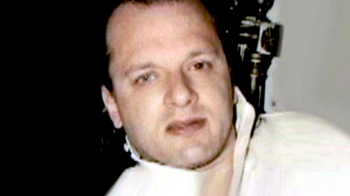Mumbai, Mar 24: Pakistani-American terrorist David Headley, convicted in the US for his role in the 26/11 Mumbai attacks, today told a court here that terror outfit Lashkar-e-Taiba (LeT) wanted to eliminate Bal Thackeray but the person who was assigned the job to kill the late Shiv Sena chief was arrested.
 The 55-year-old, who has turned approver in the terror case, disclosed this fact during a cross-examination on the second day by Abdul Wahab Khan, the lawyer of Abu Jundal, an alleged key plotter of the 2008 Mumbai terror attacks, via a video link from the US.
The 55-year-old, who has turned approver in the terror case, disclosed this fact during a cross-examination on the second day by Abdul Wahab Khan, the lawyer of Abu Jundal, an alleged key plotter of the 2008 Mumbai terror attacks, via a video link from the US.
Headley also told the court that he had visited the Sena Bhavan twice. He, however, did not specify the year for the same.
"We wanted to target the chief of Shiv Sena... His name was Bal Thackeray. LeT wanted to kill him wherever a chance arose. I knew that Bal Thackeray was the head of Shiv Sena. I have no first hand knowledge but I think an attempt was made by LeT to kill Bal Thackeray," he said.
"I don't know how this attempt was made. I think the person (who was sent to kill Thackeray) was arrested but he managed to escape from police custody. I don't have first hand knowledge about this though," Headley added.
He also told special judge G A Sanap, who is hearing the 26/11 terror case against Jundal in a sessions court here, that he does not know who else was a target of LeT apart from Thackeray.
Yesterday, Headley spilled the beans on how once US financed his trip to Pakistan and also claimed that he had "donated" about Rs 70 lakh to LeT till 2006, two years before the Mumbai attacks.
He, however, contradicted reports that he had received money from LeT.
"I never received money from LeT... This is complete nonsense. I gave funds to LeT myself. I had donated more than 60 to 70 lakh Pakistani Rupees to LeT throughout the period I was associated with them. My last donation was in 2006," Headley told the court.
He also said that after his arrest in 1998, the Drug Enforcement Authority (DEA) of the US had financed his trip.
Also, the terrorist, who faced conviction twice in 1988 and 1998 for alleged drug smuggling before the Mumbai siege, had indulged in criminal activities and violated his plea bargain agreements with the US government, the court was told.
Headley, who is serving a 35-year jail term in the US, also told the court that Tahawwur Rana, his associate and a Pakistani native who operated an immigration business in Chicago, was aware that he was an operative of LeT.
Headley had also disclosed that Rana had once come to Mumbai just prior to the 26/11 strikes, and that the latter continued his association with him till Headley's arrest.
He, however, refused to answer questions about his wife Shazia and reveal her location, whether she is in the US or Pakistan, or her father's name.
"Shazia is still my legally wedded wife. I do not want to disclose Shazia's location at present. I do not want to answer any question about my wife Shazia," he said.
When Khan continued questioning him on Shazia, Special Public Prosecutor Ujjwal Nikam took objection to it and said that under Section 122 of the Indian Evidence Act, the communication between a husband and wife is a privileged one and need not be disclosed.
The Pakistani-American terrorist had earlier concluded his week-long deposition before the Mumbai sessions court through a video-link from the US on February 13.
Headley, in his earlier deposition, said how Pakistan's intelligence agency ISI provides "financial, military and moral support" to terror outfits LeT, Jaish-e-Mohammad and Hizbul Mujahideen, and how LeT planned and executed the 26/11 Mumbai attack.
He had also claimed that Ishrat Jahan, killed in an allegedly fake encounter in Gujarat, was an LeT operative.





Comments
America might have sent and financed similar kind to attack Paris Brussels saudi and other countries . And later act like peace keeper in world.
Add new comment